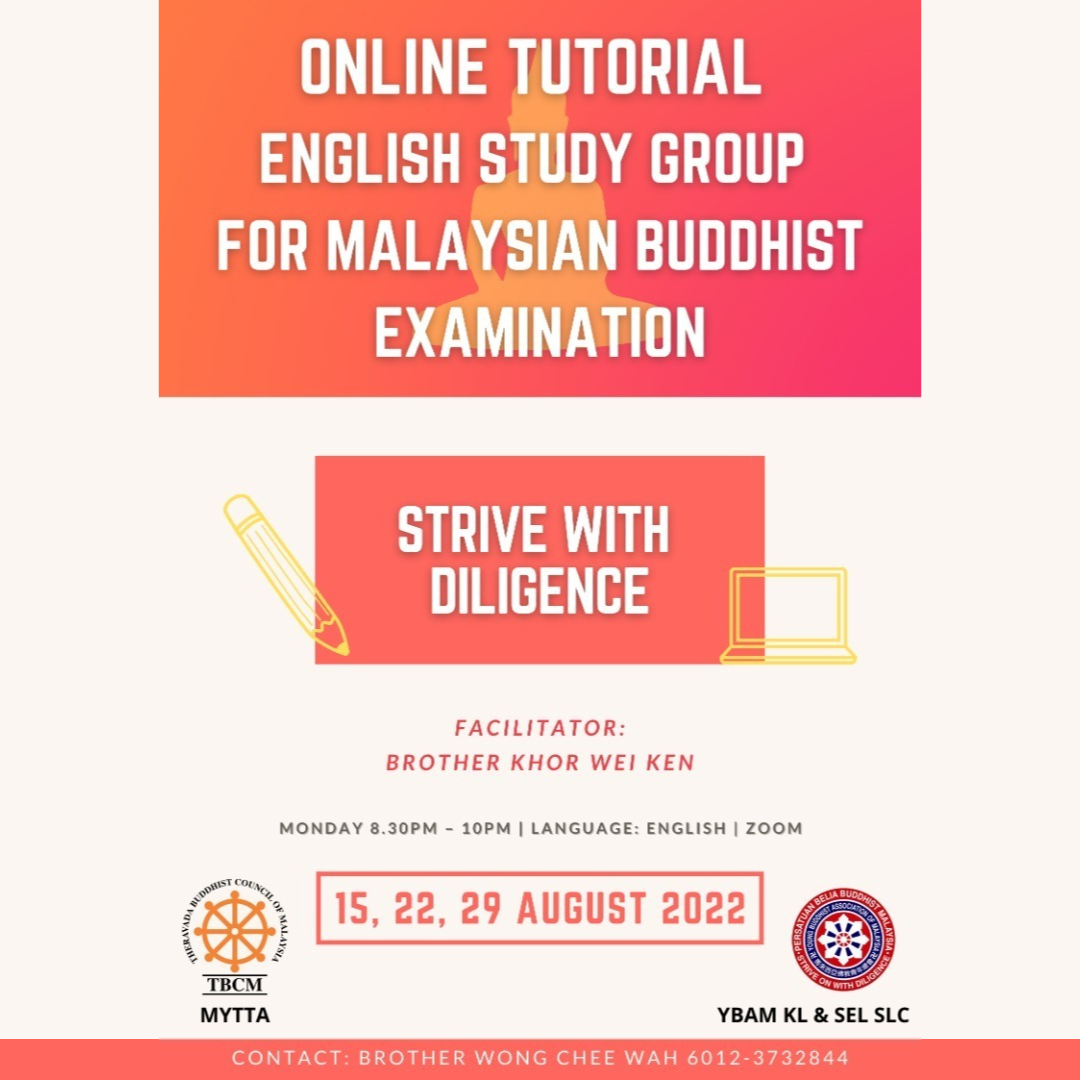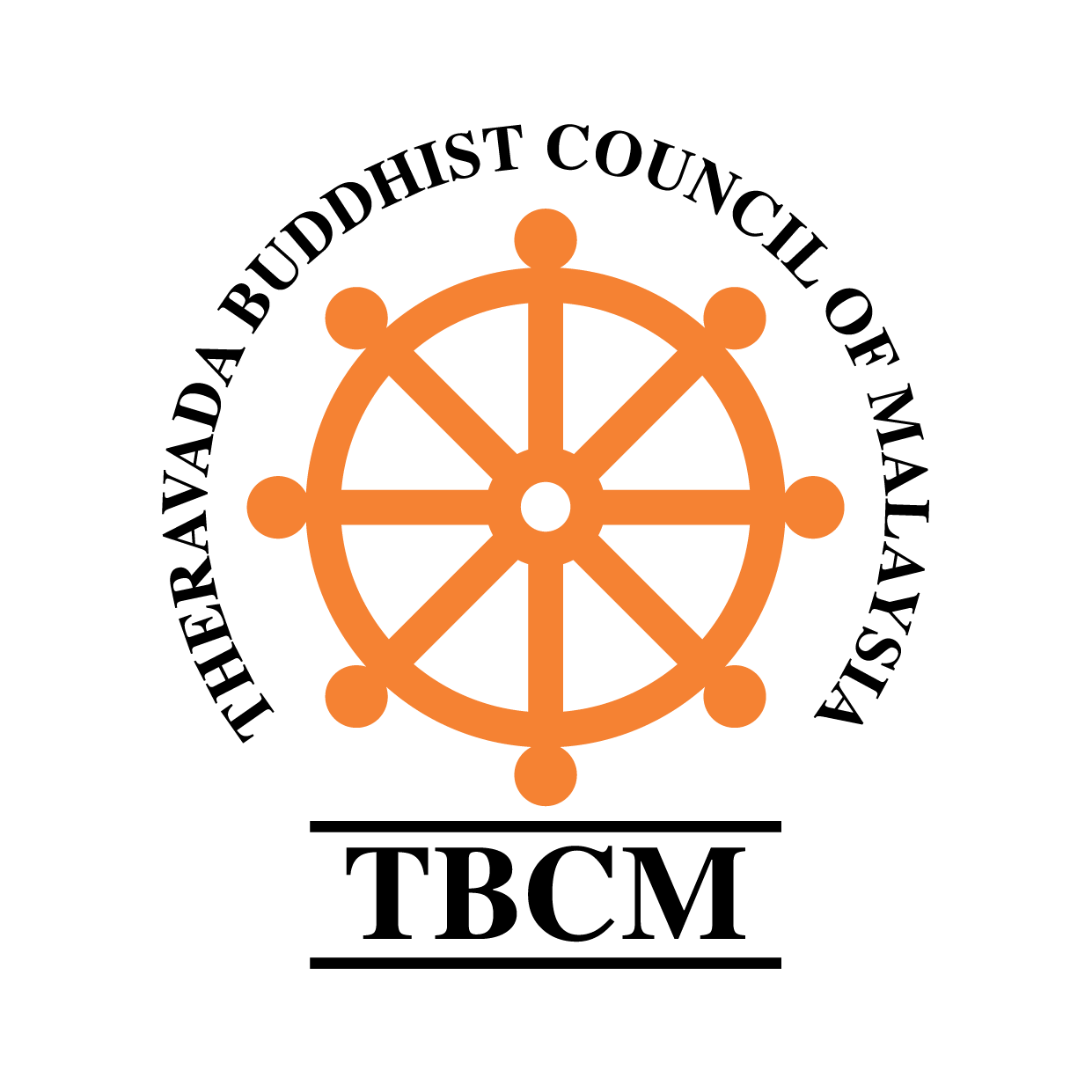Theravada Buddhist Council of Malaysia
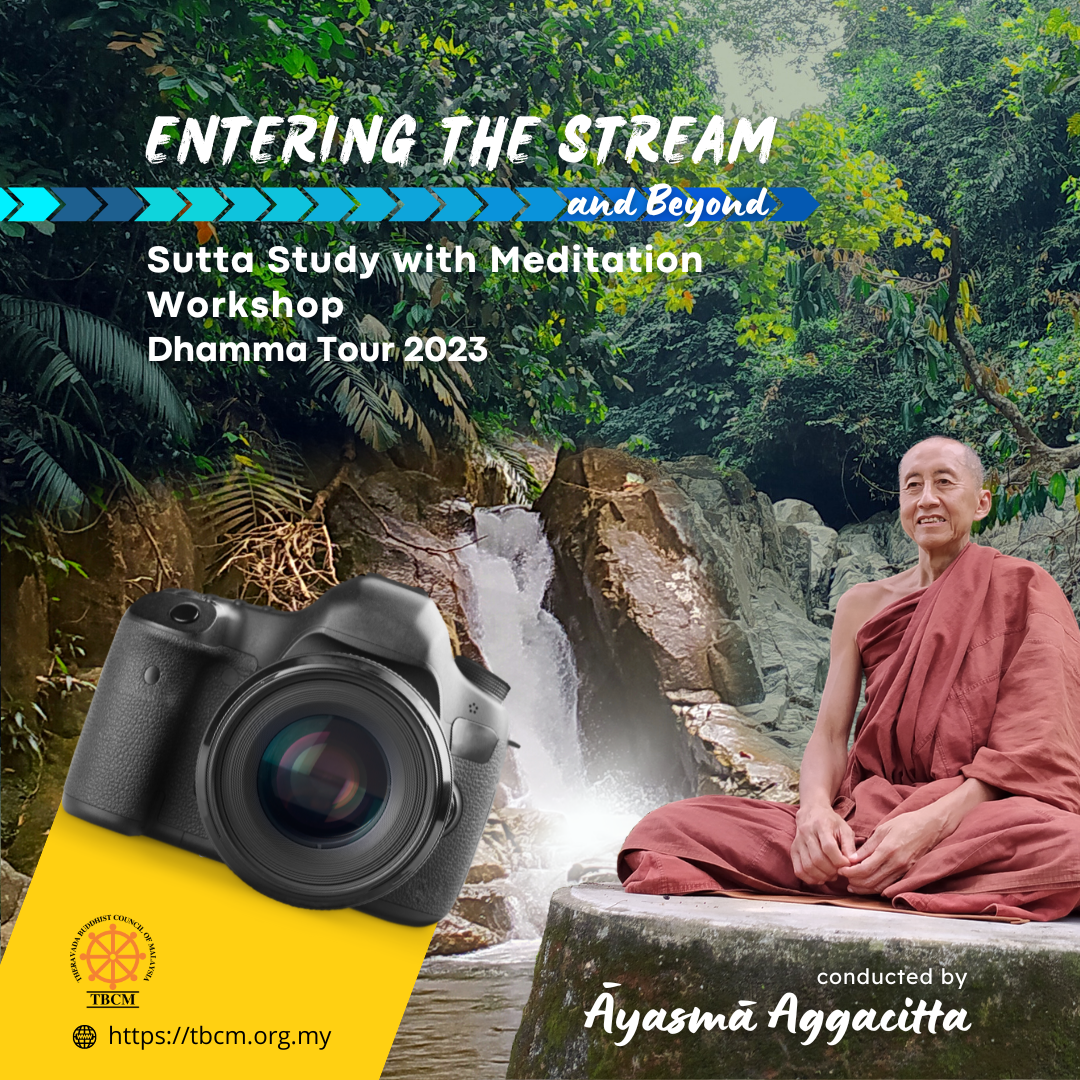
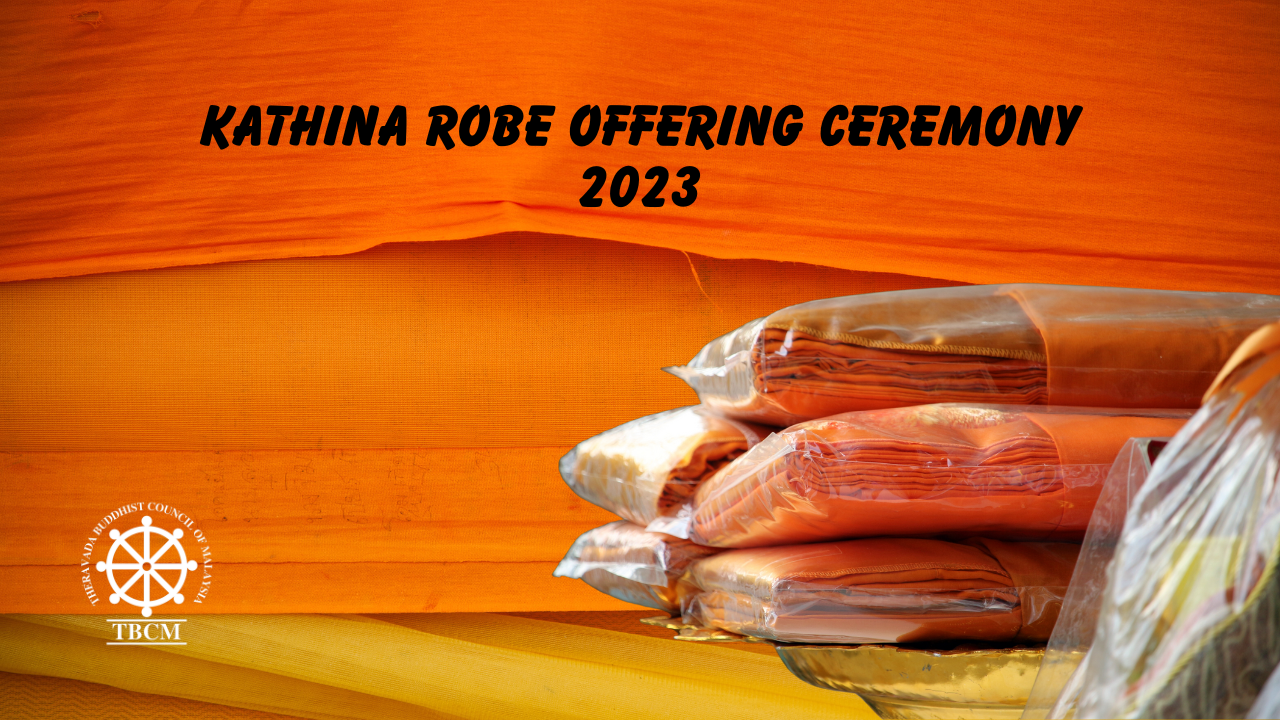
Kathina robe offering ceremony 2023
List of Temples or Societies (Malaysia) holding Kathina in 2023
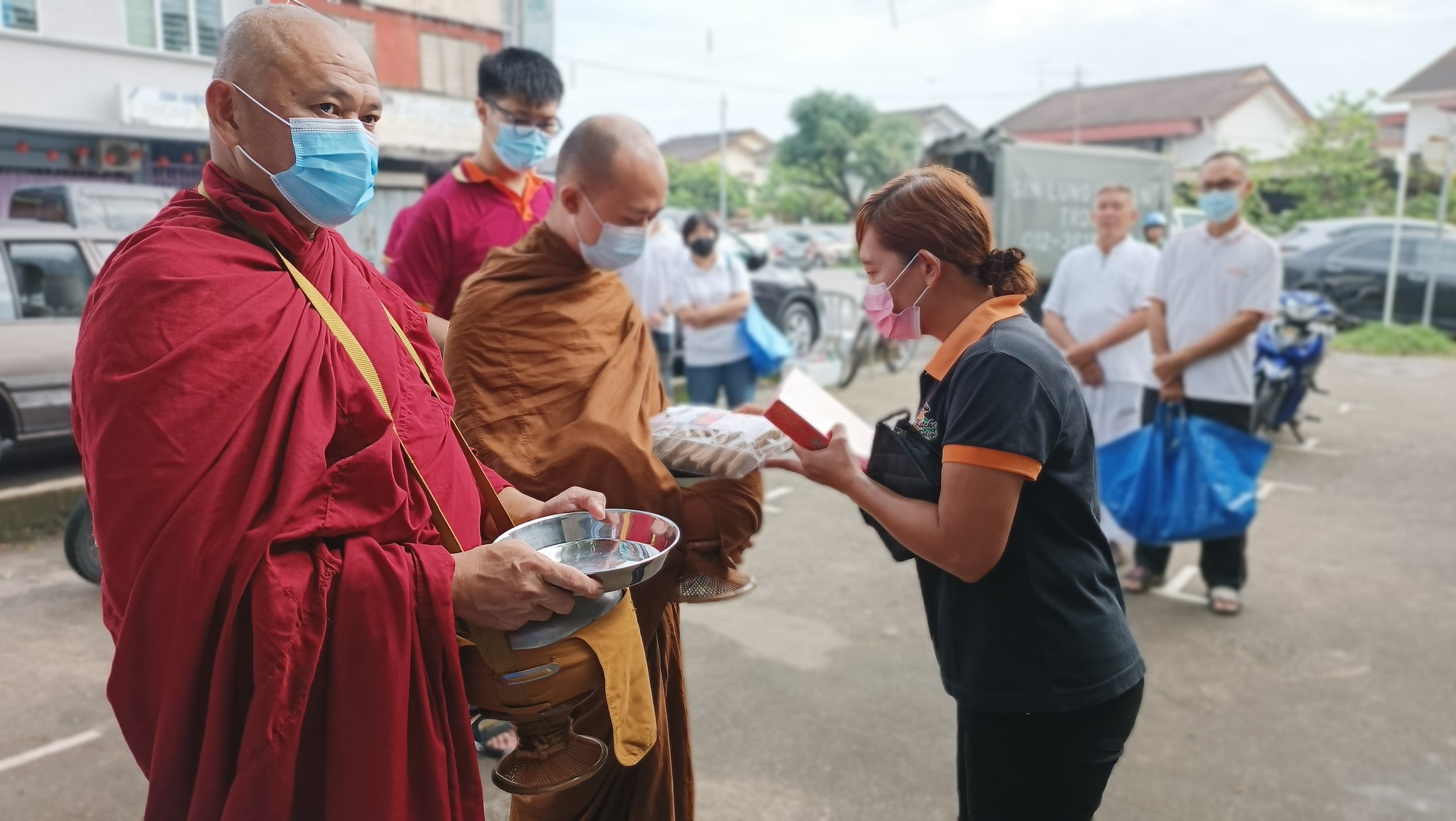
What is Pindacāra?
Pindacāra, the practice of collecting alms-food, is observed by Theravada Buddhist monks who have gone forth from ‘home-life’ to ‘homelessness’. A Buddhist monk is known in Pāli Language as a ‘bhikkhu’ – meaning ‘one who lives on alms’.
In Buddhist countries such as Thailand and Myanmar, it is a daily ritual for monks to go onPindacāra, where they walk through a village from one household to another, allowing devotees to make food offerings.


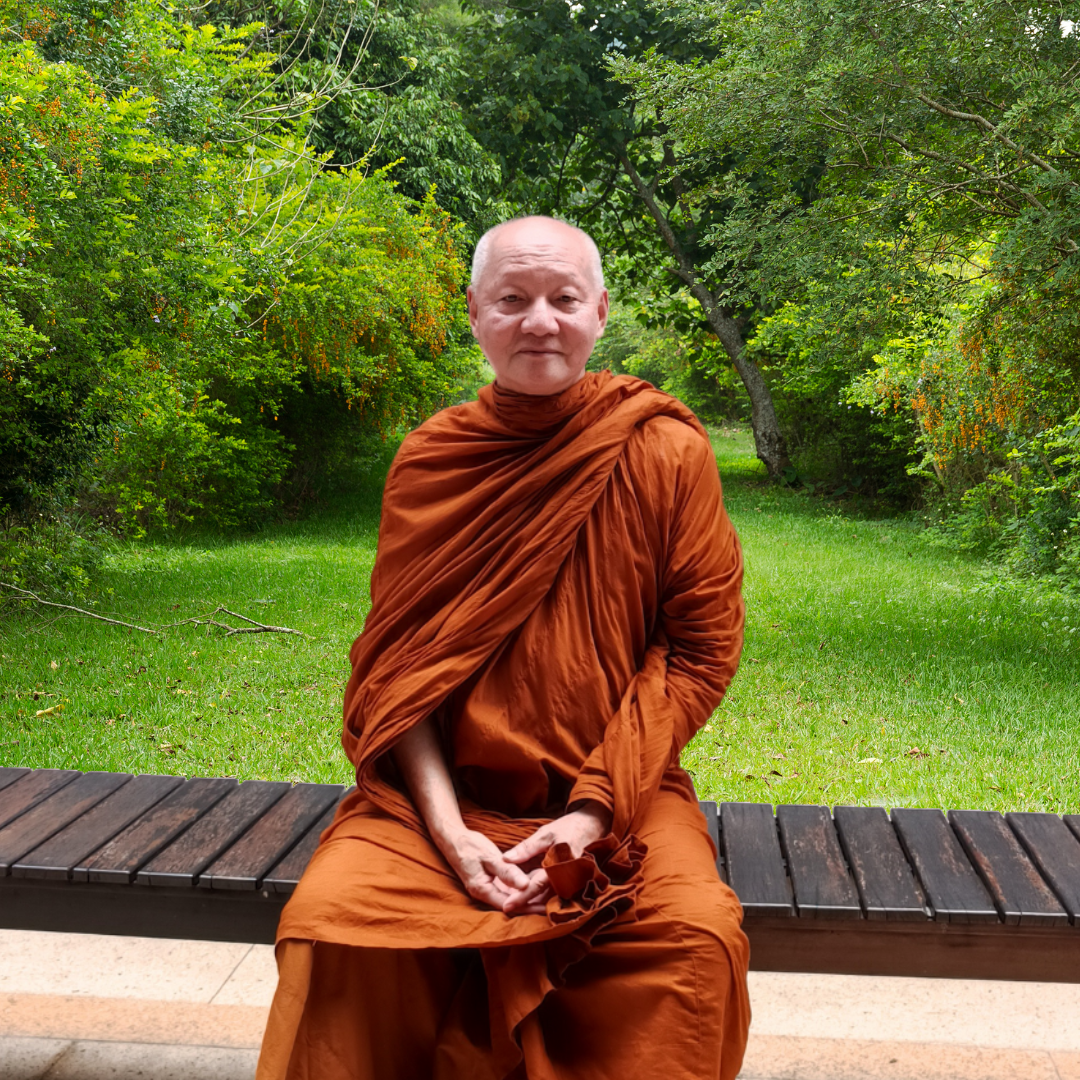

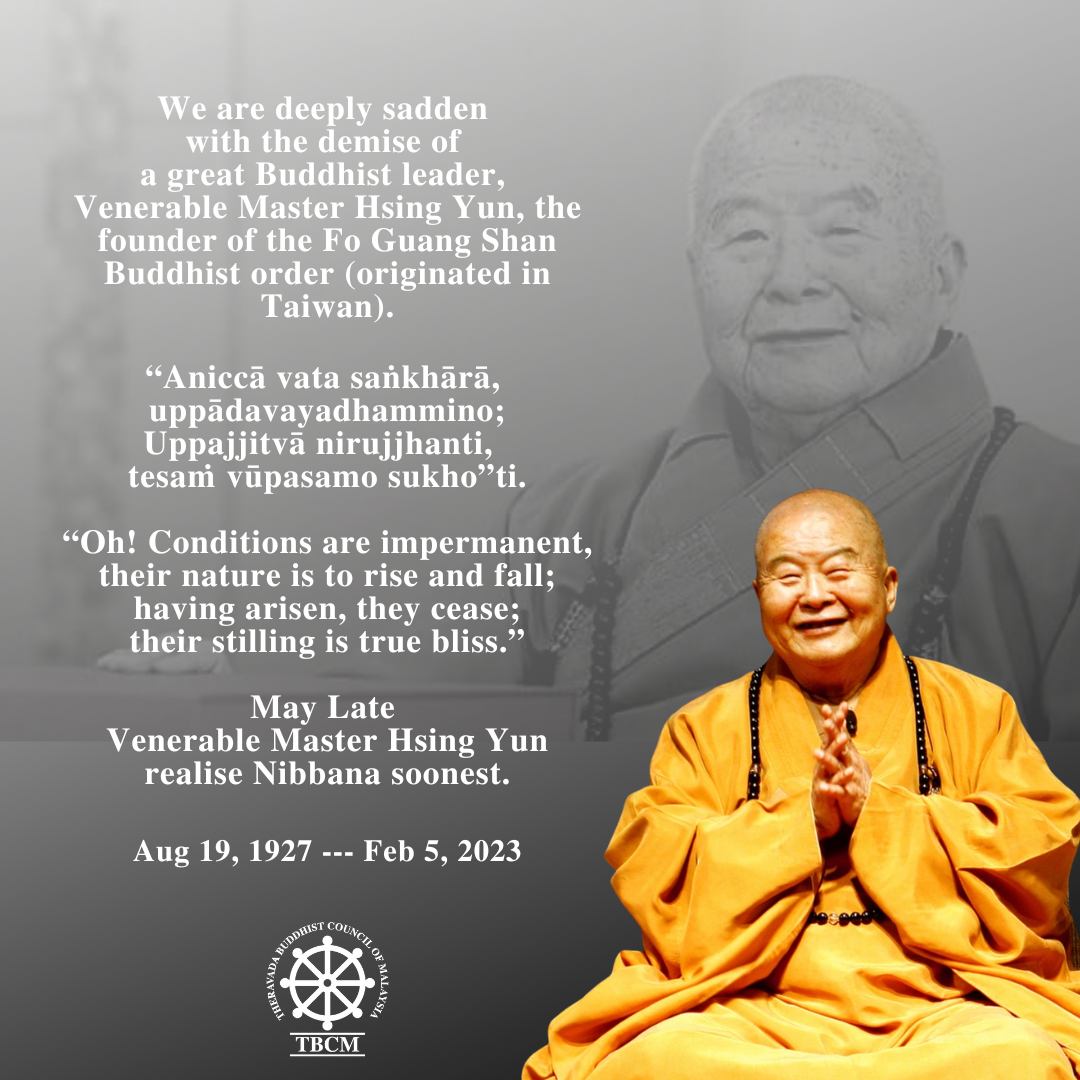
Late Venerable Master Hsing Yun
Aniccā vata saṅkhārā,
uppādavayadhammino;
Uppajjitvā nirujjhanti,
tesaṁ vūpasamo sukho”ti
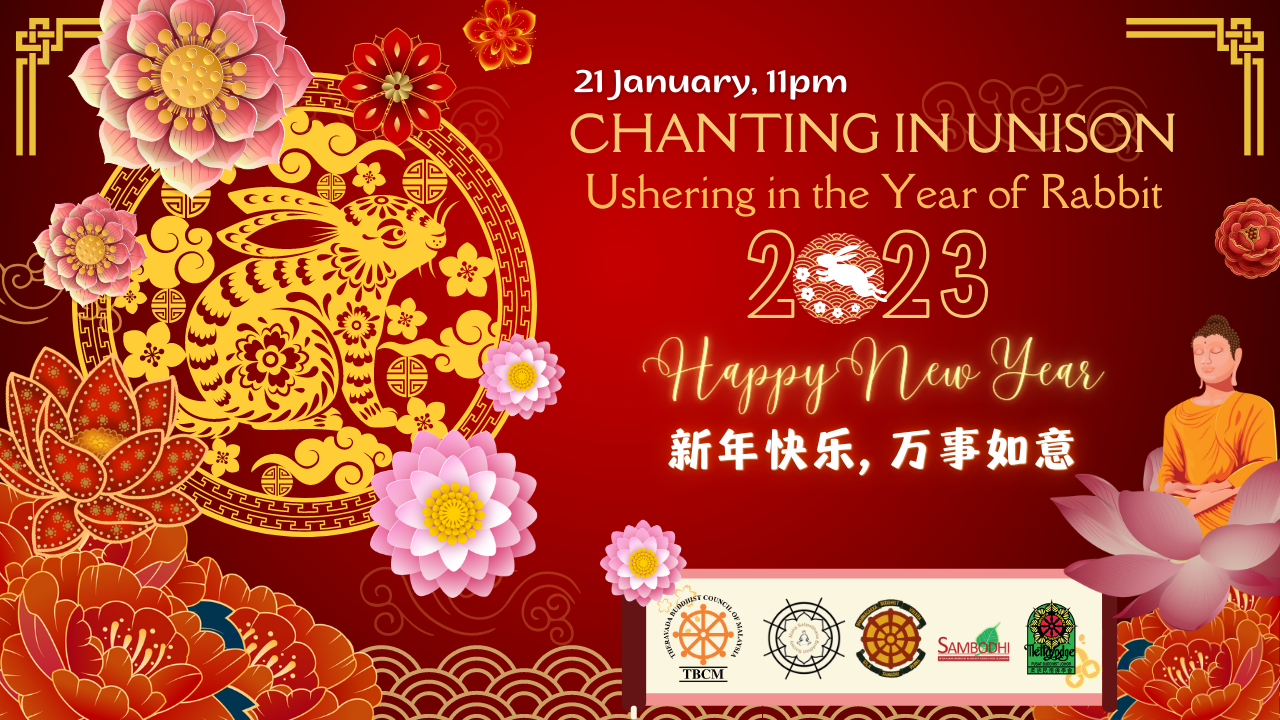
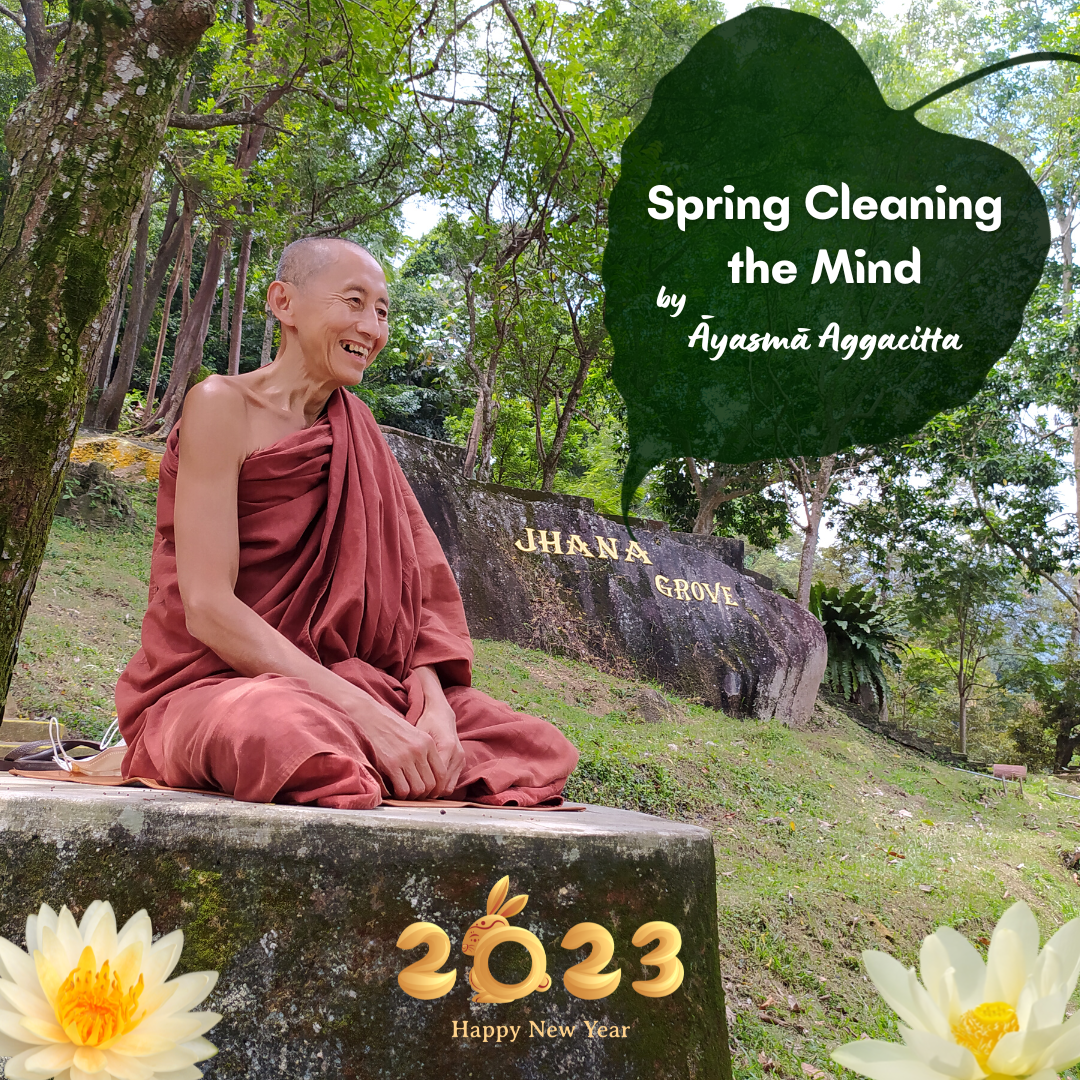



What is Theravada Buddhism?
Theravada (pronounced — more or less — "terra-VAH-dah"), the "Doctrine of the Elders," is the school of Buddhism that draws its scriptural inspiration from the Tipitaka, or Pali canon, which scholars generally agree contains the earliest surviving record of the Buddha's teachings. For many centuries, Theravada has been the predominant religion of continental Southeast Asia (Thailand, Myanmar/Burma, Cambodia, and Laos) and Sri Lanka. Today Theravada Buddhists number well over 100 million worldwide. In recent decades Theravada has begun to take root in the West.

